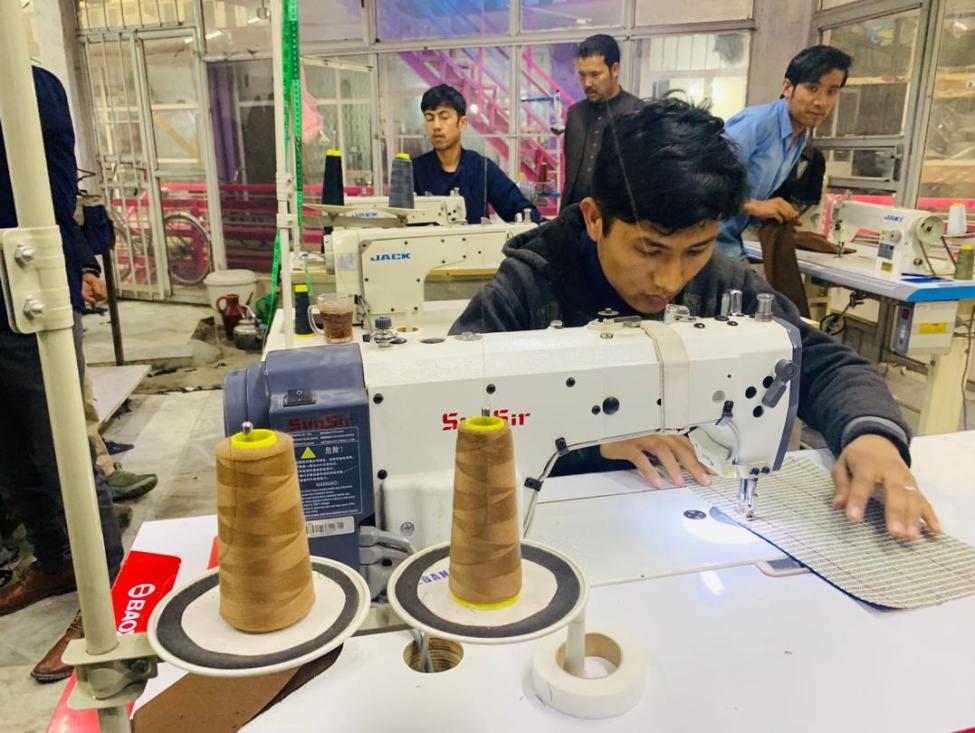-
Who We Are
WHO WE AREIOM is the leading inter-governmental organization promoting humane and orderly migration for the benefit of all, with presence in over 100 countries. IOM has had a presence in Afghanistan since 1992.
About
About
IOM Global
IOM Global
-
OUR WORK
Our WorkAs the leading inter-governmental organization promoting since 1951 humane and orderly migration, IOM plays a key role to support the achievement of the 2030 Agenda through different areas of intervention that connect both humanitarian assistance and sustainable development. Across Afghanistan, IOM addresses capacity building in migration management, migration and development development, migrant assistance and labour migration.
Cross-cutting (Global)
Cross-cutting (Global)
- Data and Resources
- Take Action
- 2030 Agenda
COVID-19 is spreading quickly across Afghanistan and with it, concerns for its disproportionate impact on the most vulnerable among the Afghan people, including returnees. In Afghanistan, returnees are among the high-risk groups afflicted by the present COVID-19 crisis as they have limited access to basic services, especially healthcare, and also face loss of income and livelihoods because of the countrywide lockdown.
Returnees like Ghulam Hassan (42), who have been working with IOM under the European Union-funded Reintegration and Development Assistance in Afghanistan (RADA) project in Afghanistan to support sustainable reintegration of returnees within their communities of return, now stand to see their thriving business fall apart as a direct consequence of the COVID-19 lockdown. Hassan spent a couple of years in Utrecht, Netherlands, but failed in his attempt to secure asylum and returned to Afghanistan in 2017. IOM Netherlands linked the aspiring entrepreneur with IOM Afghanistan who then supported Hassan to reboot his life back in his home country. He invested the cash in a Kabul-based business organization, Faizy Tailoring Company, and soon became a partner. Today, his thriving company is working in partnership with IOM on scaling up and creating employment opportunities for returnees coming back from Turkey, European countries and neighbouring Iran and Pakistan.
Under the leadership of Hassan, Faizy Tailoring Company progressed from a few workers to employing as many as 18 staff members in Kabul over the last two years. Until a month ago, Hassan was busy expanding his market reach by increasing the manufacturing capacity of his company. But that changed after Afghanistan imposed a lockdown in wake of the COVID-19 pandemic. “Eighteen people were working for us and making a living. Because of the lockdown, we have closed the company and we aren’t able to produce or sell any products,” says Hassan.
Nervous about the future of his company and his staff, Hassan understands the importance of the lockdown to stop the transmission of the virus, nevertheless, he is worried about the negative economic impact it will have on his business and employees. “So far, I have managed to pay partial salaries to my full-time staff but if the lockdown continues, that will not be possible. I am afraid that the lockdown will push us all down to extreme poverty,” says Hassan.
Afghans have lived through decades of war, but now they are up against an unprecedented challenge that is global in its spread and impact. Ordinary Afghans, like many other poor people around the world, are faced with the dual burden of the novel contagious disease on the one hand, and on the other, the ensuing economic instability brought about by the COVID-induced lockdown.
Rabia (38), a widow and a mother of four young children, had returned from Quetta, Pakistan a few years ago and settled in Kandahar. She struggled to find a stable source of income for years and supported her family doing various odd jobs. Rabia was recently employed by a clothing company in Kandahar that partners with IOM on business scale-up. At her new job, she was learning tailoring in addition to making a living. When she heard about the lockdown in Afghanistan, her first worry was how her family would survive without adequate food stock to last a few months, and without a continuing source of income.
“I had recently found employment and was learning tailoring at my job. The lockdown forced the company to close down and I am again left with no source of income. It is difficult to survive and provide for my four children. I don’t have enough food to feed them,” says Rabia.
In its efforts to respond to the coronavirus crisis, IOM is actively supporting the Afghan Ministry of Public Health and WHO in addressing preparedness and emergency coordination through its Migration Health Unit in Afghanistan. However, the multi-pronged threat faced by the returnees continues to remain a major concern.
